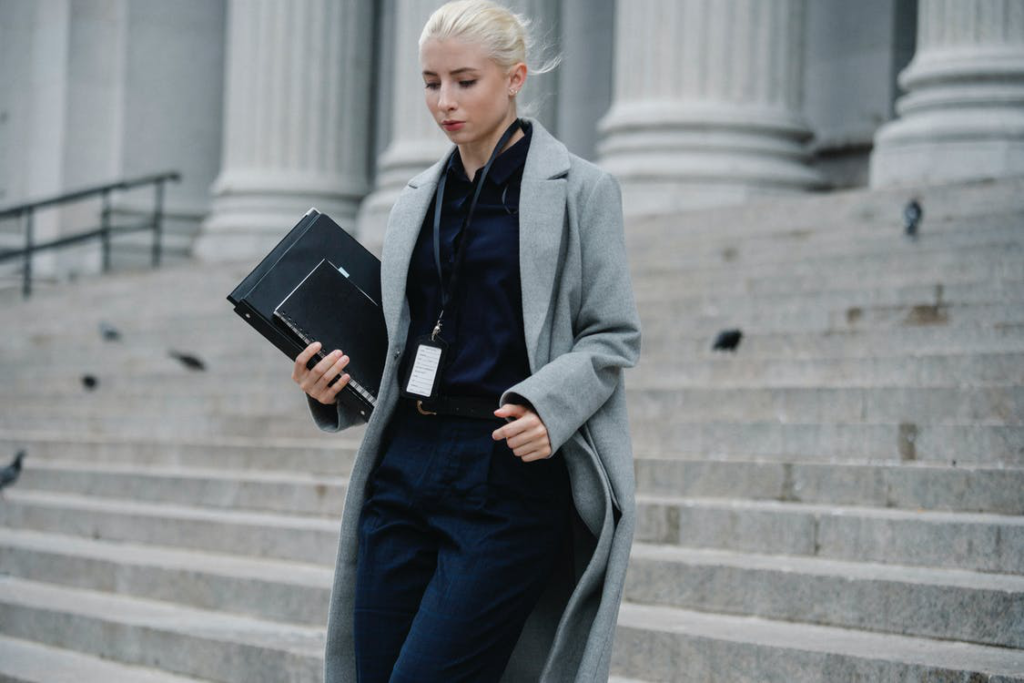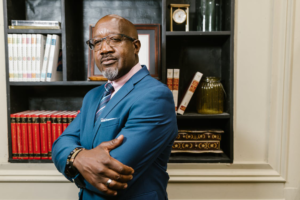
- admin
- October 17, 2021
- 7:14 am
- No Comments
Court Officers: Who Are They And What Do They Do?
Also known as bailiffs, court officers are there to execute and enforce court orders in a courtroom. If you’re interested in becoming a court officer in New York City, this post is just for you.
So who are court officers, and what do they do? Keep reading to learn more about the duties they perform and their role in court, and what it takes to become a court officer.
What Is a Court Officer?
Court officers are the personnel who ensure the smooth and efficient function of the court’s inner workings.
 They are the people who stand on either side of the prisoner in the courtroom, guard the prisoner, and escort them in and out of the courtroom. They are the first line of defense if a prisoner decides to become unruly and break courtroom decorum. Depending on the circumstances, they could be wearing their uniform or a suit. They also generally watch security threats in the courtroom gallery (seating area for the open public).
They are the people who stand on either side of the prisoner in the courtroom, guard the prisoner, and escort them in and out of the courtroom. They are the first line of defense if a prisoner decides to become unruly and break courtroom decorum. Depending on the circumstances, they could be wearing their uniform or a suit. They also generally watch security threats in the courtroom gallery (seating area for the open public).
The Role Of A Court Officer
A court officer’s role in the courtroom is to prepare the courtroom before a case begins, escort the judge, sheriff, and other personnel to and from the courtroom; they also ensure that court orders are followed to the T.
In other words, they are law enforcement officers in charge of the courtroom in the absence of the judge and act as an assistant to the judge during court proceedings. They work side by side with the court clerk, security, and police officers to keep the courtroom and courthouse safe and running efficiently.
Responsibilities Of The Court Officer
One of the major responsibilities of the court officer is to secure, store, and handle evidence that is to be used in court, along with other items. Also, accommodating the witnesses and escorting them from the witness room to the courtroom and back is primarily the court officers’ job.
Here are some other responsibilities of a court officer.
The list of responsibilities of the court officer include:
- Making and taking phone calls for the court.
- Assist personnel who are visiting the courthouse.
- Collect and note entries of witnesses in cases and directing them.
- Calling in witnesses to cases.
- Swearing in witnesses.
- Handling evidence to cases.
- Keeping jurors and witnesses up to date on judge’s orders and court proceedings.
- Utilizing court resources to assist in cases, i.e., providing equipment for trials such as whiteboards, TV, computers, CCTV footage, etc. And setting all of it up.
- Maintain decorum in the courtroom.
- Keep the courtroom secure.
- Administrative work like photocopying, filing, and giving court papers to the judge, counsel, and witnesses.
- Collect legal paperwork, letters, and mail to be sent out every day.
- Transport cash and cheques to the bank.
- Collect letters and legal documents and prepare the mail to send out each day.
- Deliver cash and checks to the bank at the end of the day.
- Finding and fetching reference books during court proceedings for the sheriff and other officials.
- Updating and maintaining court reference guides and other literature.
- Move documents or other light items to and from the court.
- Update court reference guides.
- Ensuring the jury’s privacy while they deliberate on the verdict.
- Open up and close up the courthouse every day.
- Inform when repairs are needed for the building.
Other Responsibilities
Along with overseeing court proceedings, they also ensure everything complies with the judge’s orders and government protocols.
 They must deal with people who are in difficult situations while remaining calm and tactful. These people might be anxious, angry, and scared to have their or a loved one’s fate being decided in a courtroom.
They must deal with people who are in difficult situations while remaining calm and tactful. These people might be anxious, angry, and scared to have their or a loved one’s fate being decided in a courtroom.
Regardless, court officers must do their jobs diligently and impartially while maintaining confidentiality as needed.
Personal Requirements For a Court Officer
The following personal traits are essential to be a court officer.
- Sense of professionalism and maturity
- A sense of morality and a good character
- Good communication skills
- Aptitude for clerical duties
- Comfortable legal surroundings
- Highly responsibility
Education & Training
A court officer job doesn’t require a formal higher qualification, but the court does require a high school diploma, and federal and state courts require a bachelor’s degree. Aspirants need to ace their NYS court officer trainee exam to qualify for the job.
Courses may vary in different institutions, so a good choice would be to seek help in your NYS court officer trainee exam.
 Another way to go is military, security, or law enforcement experience to show as a platform where you’ve acquired the basic practical skills needed for the job, e.g., self-defense and maintaining courtroom decorum without any hassle.
Another way to go is military, security, or law enforcement experience to show as a platform where you’ve acquired the basic practical skills needed for the job, e.g., self-defense and maintaining courtroom decorum without any hassle.
However, you should already be well versed in the basics of law enforcement, regulations, and the criminal justice system to stand out.
Becoming a Court Officer
This job can be very physically demanding and mentally intense, and it requires candidates to train accordingly. Diligence and good discretion are must-haves to qualify for the court officer role. Inside the courtroom, they are in charge of enforcing state laws in any given circumstance.
Hopefully, you’ve gained valuable insight into who a court officer is and what they do. You might even be interested in exploring the profession for yourself.
Civil Service Success can help you get an edge over other competitors and beat the competition. Our faculty with unique experience in civil service and education can teach you everything you need to know about passing the NYS court officer exam and the job itself.
Get in touch with us to learn more about our private tutoring service in New York.

